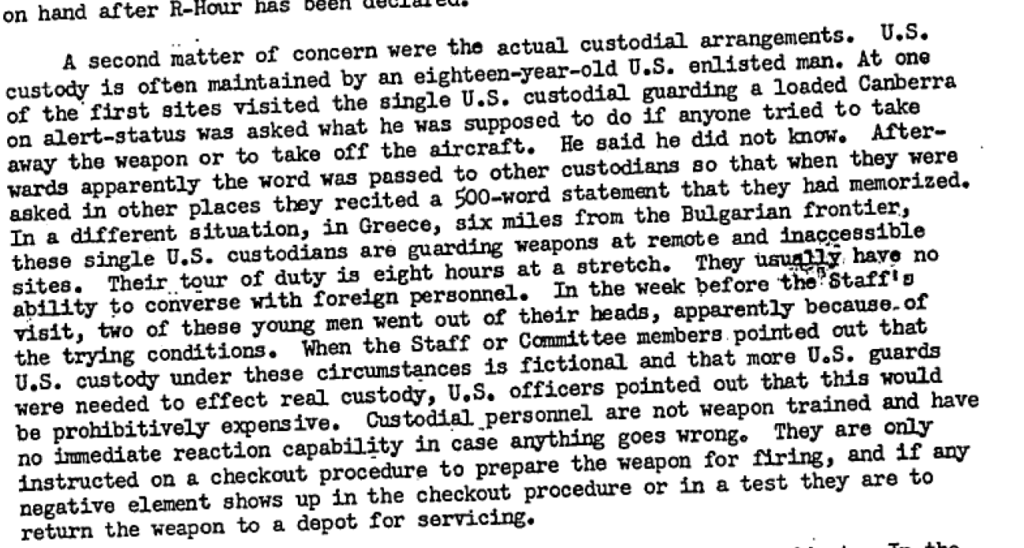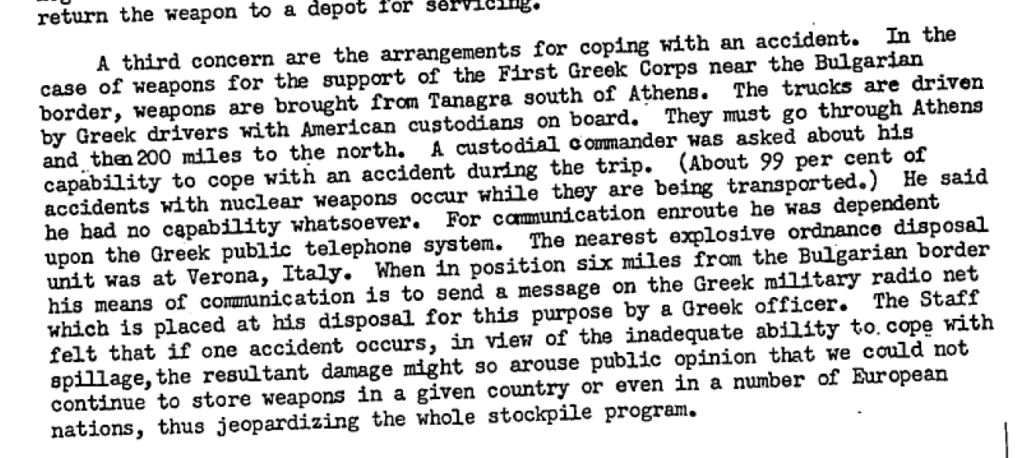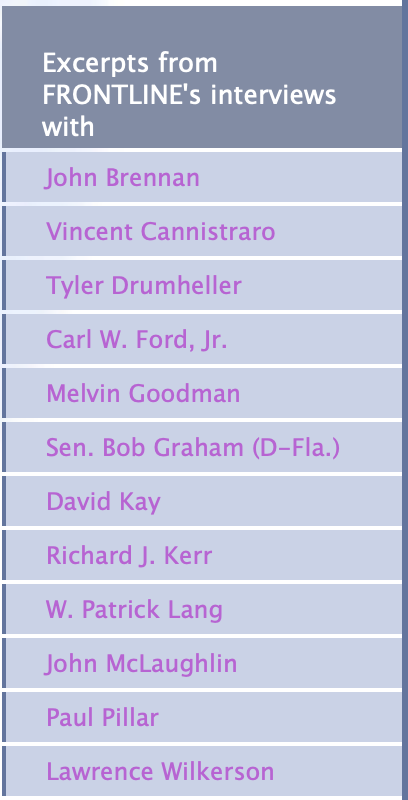Not from one of his better albums, but still.
Monthly Archives: January 2020
Nuclear Weapons Security
A few days ago, the IAEA published an article about nuclear security. Here’s the opening paragraph:
Nuclear and other radioactive material is hardest to protect when it is transported from point A to point B — more than half of the incidents of theft of radioactive material reported to the IAEA between 1993 and 2019 occurred while it was in transport.
The rest of the piece, which is worth reading, continues in that vein and observes that this subject is on the agenda at a forthcoming meeting.The article reminded me of a 1960 State Dept MemCon of a meeting with JCAE members that the National Security Archives published a little while back. In addition to a slew of other interesting material, the memo describes some JCAE concerns about the security of U.S. nuclear weapons in Europe.
In addition to observing that “[a]bout 99 per cent of accidents with nuclear weapons occur while they are being transported,” the memo has more relevant content:




More Zarif on Nuclear Weapons
In the same Der Spiegel interview I previously mentioned, Iranian Foreign Minister Zarif asserted that the Supreme Leader’s fatwa far outweighs some of his compatriots’ possible support for obtaining nuclear weapons:
Zarif: …Our decision not to build a bomb does not derive from NPT. It derives from our own moral and strategic convictions.
DER SPIEGEL: Did the killing of Soleimani change these strategic considerations?
Zarif: No. Moral convictions do not hinge on the illegal behavior of others.
DER SPIEGEL: There’s a faction inside the Iranian leadership that believes that nuclear weapons are the only way for Iran to defend itself against the U.S. They may well have an additional argument for that case now.
Zarif: As I told you, Iran is not a monolith – you will not find unanimity in Iran on most issues. But the revolutionary leader has issued a fatwa (Ed’s note: a religious legal opinion) prohibiting weapons of mass destruction.
Iranian officials, of course, frequently mention the fatwa, but it’s rare that they acknowledge some Iranians’ support for nuclear weapons.
Iran JCPOA Fact Sheet
A bit old, but Iran put out a fact sheet a few months back titled Fact Sheet on Iran’s Reduction of Some JCPOA Commitments. It’s worth reading if you want to understand Tehran’s articulated reasoning behind its decision to decrease implementing the JCPOA-mandated restrictions concerning Iran’s nuclear program.
I like this paragraph, but read the whole thing:
Since taking office as the US President, Donald Trump has been seeking to scupper the Iran nuclear deal known as the Joint Comprehensive Plan of Action (JCPOA), arguing it has been the “worst and most embarrassing agreement in the United States” history”.
He tried for so long to make Iran violate the JCPOA to shift the responsibility for scuppering the deal on the Islamic Republic and revive an international consensus against Tehran. This plot against international peace and security was thwarted thanks to Iran”s strategic restraint, vigilance and constant compliance with the JCPOA.
Zarif on NPT Withdrawal
Lots of people know that Iran has threatened to withdraw from the NPT, should the E3 refer Iran’s JCPOA noncompliance [as the E3 characterizes it] to the UNSC. But Zarif clarified Iran’s position in this Der Spiegel interview:
DER SPIEGEL: How would Iran react to the reinstatement of UN sanctions?
Zarif: President Hassan Rohani clarified the actions we will take in a letter to the treaty partners.
DER SPIEGEL: Could you explain for our readers?
Zarif: Your readers should know that the Europeans will be responsible for all the consequences.
DER SPIEGEL: Iran has threatened to withdraw from the Nuclear Non-Proliferation Treaty (NPT) if that happens.
Zarif: It’s mentioned in the letter.
DER SPIEGEL: Does that mean that Iran would head in the direction of building a bomb?
Zarif: No. Our decision not to build a bomb does not derive from NPT. It derives from our own moral and strategic convictions.
Statements on 2002 Iraq NIE
Back in 2006, PBS published a bunch of interviews with various important people about the 2002 Iraq NIE:

Malcolm Tucker’s List
He has you covered for this week:
Nagasaki Nightmare
UNMOVIC on Iraqi WMD Program Structure
I always like descriptions of other states’ WMD programs, especially the administrative aspect. . Here’s a good graphic from the UNMOVIC compendium which I’ve previously mentioned.

Death Angel – Final Death
Radiation turns your body to dust/Watching fallout as it fills the sky/Now it’s time for this planet to die
